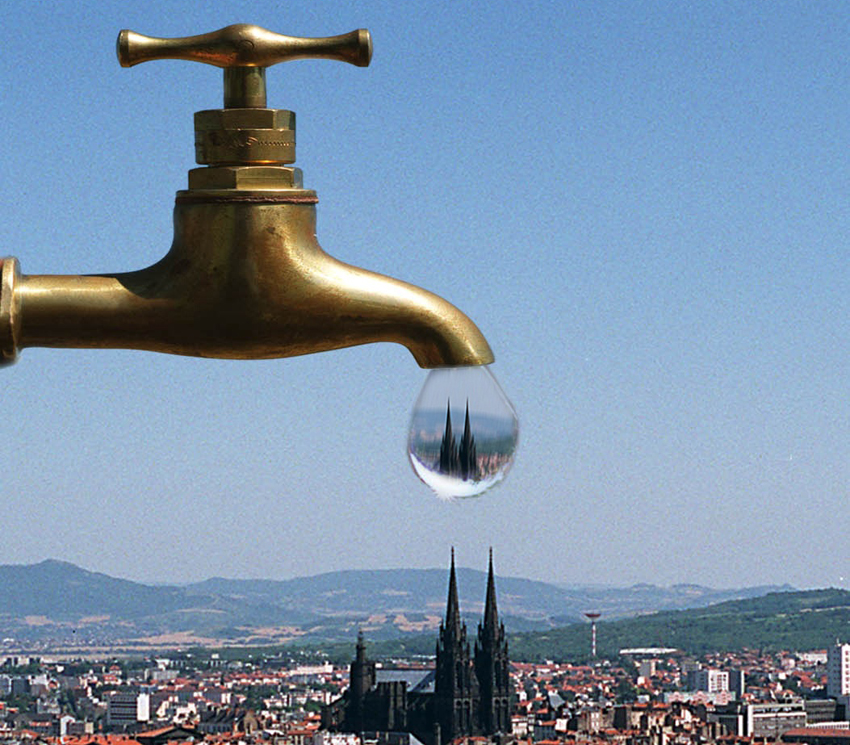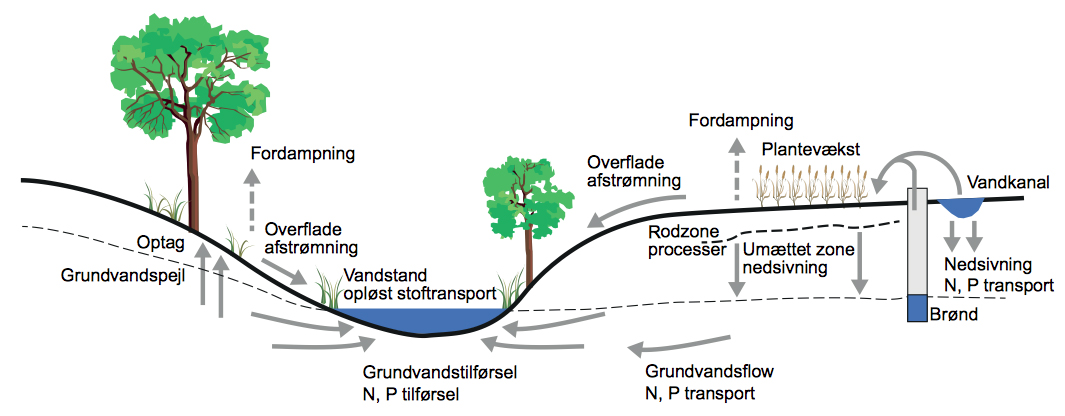The world’s most valuable resource strengthened by Aarhus University research
Clean water is without comparison the most limited resource on a global scale. Without water, there would be no society. Danish expertise and research into water technology are in an international class of their own in all aspects of the water cycle. With a new strategic research initiative, Aarhus University now further strengthens this work when the Centre for Water Technology – WATEC – is inaugurated on 6 October 2017.


A shortage of water is one of the major global challenges, both at present and in the future. This is mainly because water is the cornerstone of agriculture and food production, but access to clean water is also a necessity for households and industry. While more frequent downpours are causing the sewers to overflow here in Denmark, water shortages are having a detrimental effect on public health on a global scale, and are reducing food production.
The OECD estimates that the world population will have grown from seven billion to nine billion by 2050, which means that the need for water will increase enormously in the same period if water consumption continues at the current rate. The UN has designated the lack of access to clean drinking water as a grand challenge, and a solution must be found.
There is therefore an increasing need all over the world for water technology that saves water and does not harm the environment. Denmark is actually a world leader in water-related issues, including the development of new and better water technology.
On 6 October 2017, Aarhus University is opening a new strategic research centre – the Centre for Water Technology (WATEC) – which will bring together and strengthen research into water technologies.
“WATEC has considerable societal potential and provides an opportunity to build up an internationally leading activity with a large research volume and great social impact.
The aim of the strategic initiative that forms the basis of the research centre is to expand the Danish position of strength in an area where Danish players invest very heavily on a global scale. At the same time, there is a wish to contribute to this important work by ensuring water resources to meet the increased need of a growing population, urbanisation, better welfare, and climate change.
Aarhus University is currently among the absolute world leaders in a number of water technology areas. With this new strategic research centre, we’ve laid the foundation stone to further support Denmark’s position of strength, along with the Danish business sector,” says Dean Niels Chr. Nielsen, Science and Technology, Aarhus University.
Water technology covers everything from pumps and filters to sensors and biotechnological processes. The technology cleans our wastewater and ensures that the groundwater can flow freely and provide us with drinking water in our taps. In short, it is the technology that all Danish citizens use on a daily basis to make coffee, take a shower, wash up, water the pot plants and play water fights, and the technology around which industry has managed to build companies worth billions in a considerable number of areas – ranging from food production using desalinated seawater to pumps and sewage treatment plants. The water technology sector had exports amounting to DKK 16.8 billion in 2015. It is also the technology that will take care of adaptations to climate change in Denmark and abroad, and make sure that more and more people have access to adequate and clean water.
Precious drops and Danish tradition
Earth is called the blue planet because of the colour of its large floating bodies of water. It is water that makes it possible for life to thrive here on our little blue sphere in the cosmos. While this is poetically beautiful, there is also an undertone lurking in the image of the blue sphere – because we are part of a closed system, and there is a natural limit to the amount of fresh water available in the world overall. This makes pollution of water resources an enormous problem.
Denmark has carried out research into water technology for a long time, and we have some of the leading companies in the world in this area. Over the years, this has positioned us at the front in areas such as groundwater management, restoration of lakes and watercourses, and wastewater purification, where there is a long tradition of developing effective treatment technologies. WATEC’s ambition is roughly speaking to turbocharge nature’s own processes, thereby ensuring a good water environment at the same time as minimising greenhouse gas emissions.
“WATEC is quite unique in an international context. Thanks to the strong research environments available here at the university, we’re able to bring together a wide range of disciplines and approaches to a considerable number of challenges in modern water management. This will enable us to achieve very strong results in an international context. The research environments already collaborate to a large extent on water technologies with private and public players, and new water technology companies are being established with roots in the research that takes place at the university.
Our mission is to create greater coherence between the research environments, industry and society by strengthening and coordinating research into water technology. This includes taking the initiative to intensify research and development efforts in new interdisciplinary fields in collaboration with a number of players in academia and the business sector,” explains Centre Director Niels Peter Revsbech, WATEC.
Technological potential
Aarhus Vand A/S has 350,000 customers, and its core business consists of supplying drinking water, cleaning wastewater, maintaining sewage systems, adapting vulnerable areas to climate change, and protecting the groundwater.
Aarhus Vand counts among the leading players in modern water technology, and the company experiences great demand from abroad for its expertise in the water cycle. In 2016, along with VandCenter Syd, the company received the American ‘Utility of the Future Today’ award, which goes to particularly innovative and sustainable companies in the wastewater sector.
Over the years, the company has carried out several projects with Aarhus University researchers, and with a number of major contracts along the way, CEO Lars Schrøder can only welcome the new centre.
“With climate change and a rapid increase in urban size, there’s plenty to deal with. To meet these challenges, we have to be innovative, and I’d like to welcome this strong research centre – WATEC – to opportunities for collaboration on a wide range of issues based on advanced technology solutions,” he says.
It is a great challenge to manage water resources in a sustainable way, and still take into account the needs of different stakeholders. Increasing population densities put demands on the amount and quality of drinking water. Water is required for industrial production, and food production for the increasing population must be able to keep up.
The centre’s ambition is to combine new knowledge in physical, chemical and biological phenomena with engineering solutions that can solve problems at the same time as building up potential for new breakthroughs.
“A clear focal point is that we create functional prototypes of new technology that can be relevant for industrial development. WATEC will contribute to improved water treatment, wastewater purification, and the state of both surface water and groundwater via innovation and collaboration with relevant utility companies, organisations and companies,” says Niels Peter Revsbech.
The technological breakthroughs will reflect the centre’s diverse professionalism, and will include products such as sensors for analysing water chemistry and flow, wastewater treatment, and the removal of micropollutants from the healthcare sector, agriculture and urban environments. There will also be a focus on creating reliable information about the state of the groundwater.
For more information, please contact
Centre Director and Professor Niels Peter Revsbech
WATEC, Department of Bioscience
Aarhus University
Mobile +45 2338 2187
revsbech@bios.au.dk
Dean Niels Chr. Nielsen
Science and Technology
Aarhus University
dean.scitech@au.dk
More information
Click here to read more about the opening event at the Navitas Building in Aarhus on 6 October
(download PDF file in Danish only).
Read more about the strategic research centre on the WATEC website here.
Facts
The Aarhus University Centre for Water Technology consists of the Department of Agroecology, the Department of Bioscience, the Department of Engineering, the Department of Environmental Science, the Department of Geoscience, and the Interdisciplinary Nanoscience Centre.
